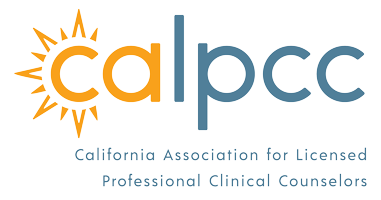Contact Us © CALPCC |
Frequently asked Questions - FAQ
LPCC ApplicationsApplications must be submitted to the BBS by post mail. Do not send additional documents until you have applied, so the BBS will have a folder for you. The BBS has limited availability to respond to email or phone messages from applicants. The BBS advises applicants to submit their applications and it will evaluate them and send a letter of deficiencies. What is the application process? The CALPCC website describes the process: calpcc.org/licensure-requirements How do I know which application to complete? The CALPCC website describes requirements for Out-of-State Applicants and In-State Applicants: calpcc.org/licensure-requirements Where do I find the applications? The CALPCC website has links to the BBS applications: calpcc.org/bbs-applications Why does my university need to verify my coursework on the Degree Program Certification form? Isn't my transcript sufficient? The qualifying degree for California's LPCC is defined by the inclusion of a certain number of core counseling areas, rather than by the degree title. The Board must verify that an applicant has completed graduate work in these core areas, as described in statute. It is often difficult to tell course content by course titles on a transcript, so the Board is asking the degree-granting institutions to verify the course content. Since it may take time for a university to complete this form, applicants can submit their application and then send this form in its sealed envelope later, but the BBS cannot evaluate the application until they have this form. Why do out-of-state applicants need to submit syllabi for their courses? While California counseling programs have already submitted their course offerings and syllabi for BBS review, the BBS does not have information on all the out-of-state counseling programs. The BBS only needs syllabi for the core counseling courses, but they have the right to ask for syllabi for other courses, if needed. If applicants are unable to secure syllabi from their university, the BBS may be able to accept course descriptions from university catalogs, but this is only a last resort. Those with post-2001 degrees from a CACREP-accredited program do not need to submit syllabi, except for the diagnosis course, which was not included in the earlier programs. The BBS has developed a guide for those who need to submit syllabi: www.bbs.ca.gov/pdf/forms/lpc/lpc_syllabi_info.pdf What is a contact hour? In addition to the core graduate courses, additional courses are required and are measured in contact hours. A contact hour is one hour of instruction. These hours can be taken as continuing education through an approved provider. They may be online, credit-no credit, or home study courses, as well as in-person workshops, but audited courses are not acceptable. The contact hour requirement can also be met through undergraduate or graduate university courses. A three-semester-unit course is 45 hours of instruction. Accredited universities are automatically considered to be approved providers by the BBS. What if my graduate courses are only 4-quarter-units? The LPCC statute requires that qualifying degrees contain 3-semester-units or 4.5-quarter-units in certain core areas. A semester-unit is 15 hours of instruction and a quarter-unit is 10 hours of instruction, so a 3-semester-unit class is 45 hours of instruction and a 4-quarter-unit course is 40 hours of instruction. In order to get 4.5-quarter-units in a core area, an applicant needs to add .5 quarter-units (or 5 hours of instruction) to each of the required core courses. If a non-core course covered 5 hours of instruction in a core course topic, it may be used to make up this deficit. Otherwise, the applicant will need to find a university that will award the additional units required for the core courses. |
